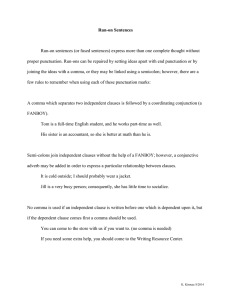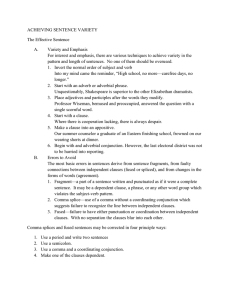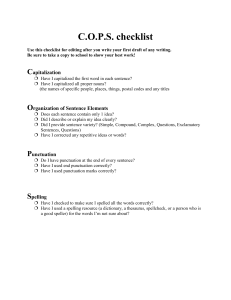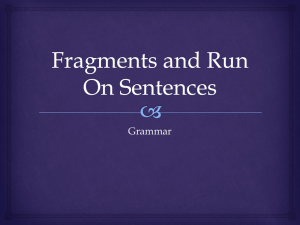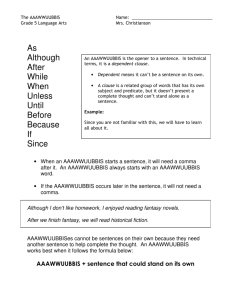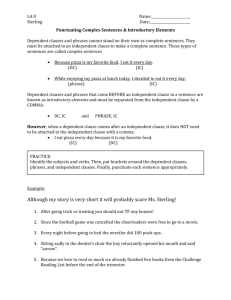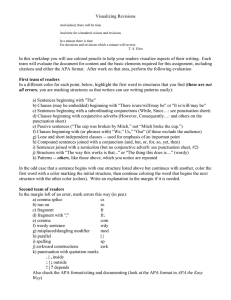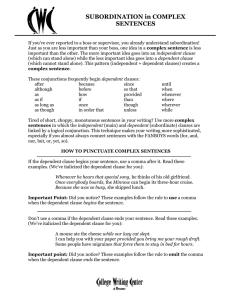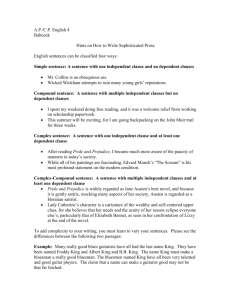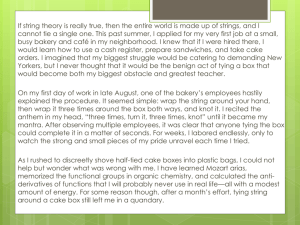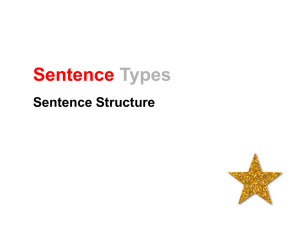4 Sentence Purposes Declarative Sentence Imperative Sentence
advertisement
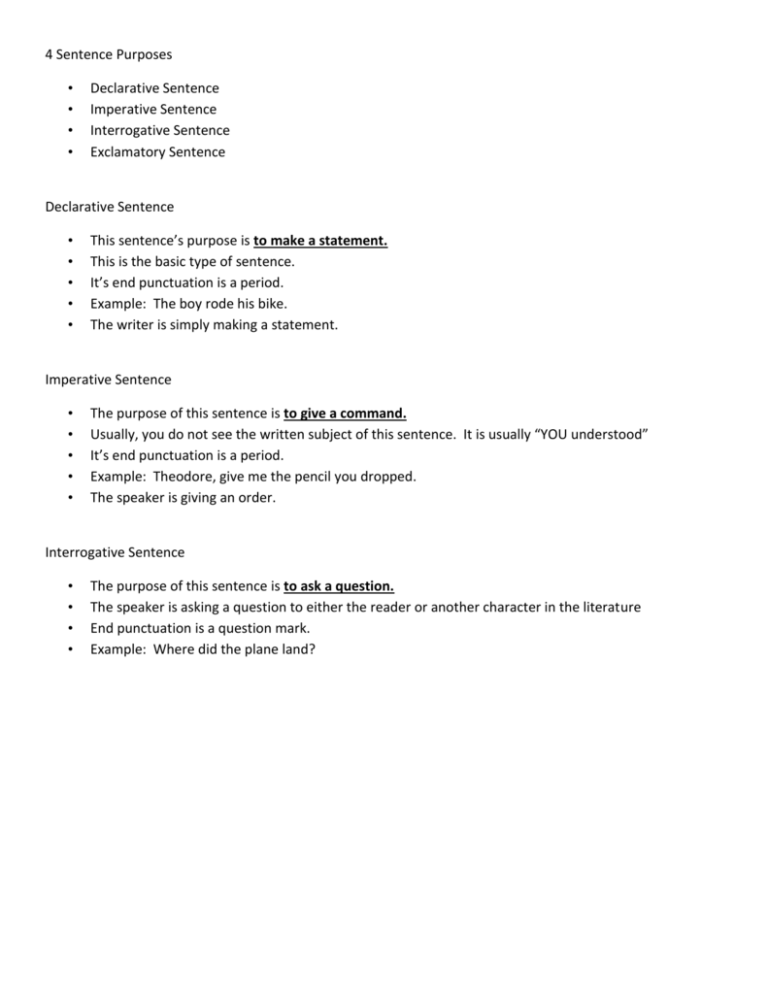
4 Sentence Purposes • • • • Declarative Sentence Imperative Sentence Interrogative Sentence Exclamatory Sentence Declarative Sentence • • • • • This sentence’s purpose is to make a statement. This is the basic type of sentence. It’s end punctuation is a period. Example: The boy rode his bike. The writer is simply making a statement. Imperative Sentence • • • • • The purpose of this sentence is to give a command. Usually, you do not see the written subject of this sentence. It is usually “YOU understood” It’s end punctuation is a period. Example: Theodore, give me the pencil you dropped. The speaker is giving an order. Interrogative Sentence • • • • The purpose of this sentence is to ask a question. The speaker is asking a question to either the reader or another character in the literature End punctuation is a question mark. Example: Where did the plane land? 4 Types of Sentences • Simple Sentence • Compound Sentence • Complex Sentence • Compound-Complex Sentence Simple Sentences • Also called an independent clause • Contain a subject and a verb • Complete a complete thought • HOWEVER, a simple sentence may have more than one subject or more than one verb BUT they still must complete ONE INDEPENDENT THOUGHT • Example: The boys and the girls walked and ran outside on the playground. • More than one subject and more than one verb but still one thought Simple Sentence Examples • Some students like to study in the morning. • Mark and Franco drove separately to the movies. • All of the kittens scurried over to the fresh bowl of milk and lapped it up. Compound Sentence • Contains two (or more) independent clauses joined together by a comma then a conjunction (or a semicolon) Compound Sentence Examples Texas would be a peninsula, but Mexico prevents it from protruding in the water. • Water and ice are great for hot days, and ice cream helps, too. • We can do what you want, or we can ask Thomas what he wants. Complex Sentence • Contains an independent clause and one or more dependent clauses • Subordinating conjunctions that join the dependent and independent clauses together • After Because Now that Until • Although Before Provided that When • As Even if Since Whenever • As if Even though So that Where • As long as How Than Wherever • As much as If That While • As soon as In as much Though • As thou gh In order that Unless Relative pronouns can also join the dependent and independent clauses together o that o which o who o whom o whose Complex Sentence Examples • A. When he handed in his homework, he forgot to give the teacher the last page. B. The teacher returned the homework after she noticed the error. C. The students are studying because they have a test tomorrow. D. After they finished studying, Juan and Maria went to the movies. E. Juan and Maria went to the movies after they finished studying. ********When a complex sentence begins with a subordinator such as sentences A and D, a comma is required at the end of the dependent clause. When the independent clause begins the sentence with subordinators in the middle as in sentences B, C, and E, no comma is required. If a comma is placed before the subordinators in sentences B, C, and E, it is wrong. Compound-Complex Sentences • Joins TWO (or more) independent clauses AND one (or more) dependent clauses Compound-Complex Sentence Examples • Though Mitchell prefers watching action films, he rented the latest drama, and he enjoyed it very much. • Laura forgot her friend’s birthday, so she sent her a card when she finally remembered.

